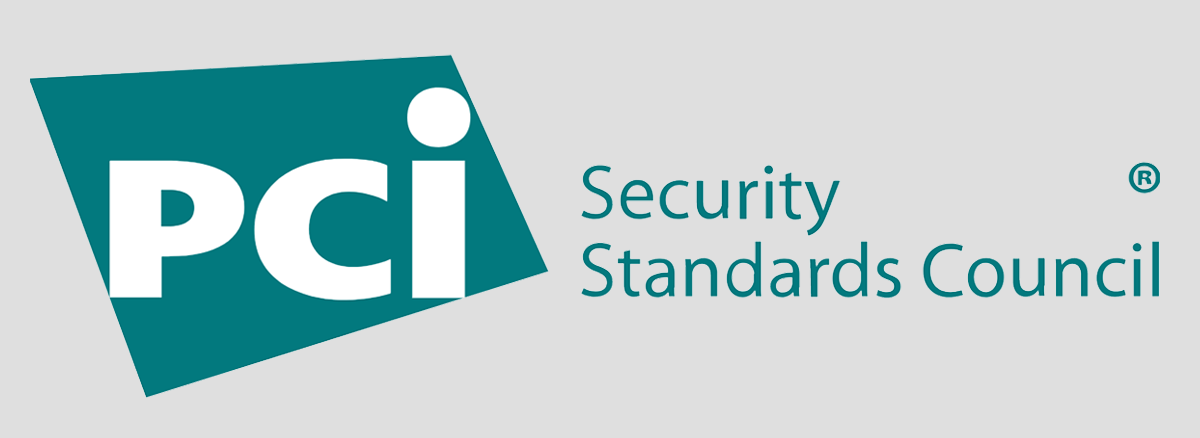The Payment Card Industry Data Security Standard is a set of requirements to help retailers protect credit card data. It was created by the PCI Security Standards Council, an independent board that manages and enforces it.
PCI Compliance is a set of requirements to ensure that no credit card information is stolen. Launched in 2006, the PCI DSS is designed to ensure that companies maintain a secure environment and keep consumer account information safe. This is important because credit cards are used to buy anything from clothes to cars.
PCI Security Standards Council (PCI SSC) is an independent body that is responsible for the administration and management of the PCI DSS. The PCI SSC is comprised of the four major credit card providers and JCB. Payment brands and acquirers enforce compliance in order to protect themselves from fines and fraud.
PCI SSC DATA SECURITY STANDARDS
The PCI Security Standards Council has made it a priority to put the security of your cardholder information first. They provide many resources to help you maintain this security, including frameworks, tools, measurements, and support sources. These will ensure that your information is always safe.
The PCI DSS is the cornerstone of the council. It provides a complete framework to develop a payment card data security process. This prevents, detects, and reacts to security incidents.
PCI DSS is an acronym for "Payment Card Industry Data Security Standard." This standard helps organizations validate and remain compliant with their compliance. The PCI DSS has standards that need to be followed, including self-assessment questionnaires to help businesses know if they are compliant and PTS, which is a PIN Transaction Security (PTS) requirement for device vendors and manufacturers.
Use these public resources for business security needs:
- A list of people and companies qualified to assess and certify your security such as a QSA, PA-QSA, ASV, or ISA.
- Tools for education programs such as an ISA.
- Approved scanning vendors, like ASVs.

REQUIREMENTS FOR PCI DSS COMPLIANCE
1.USE AND MAINTAIN FIREWALLS
A firewall is a prevention system that blocks access to private data. They are often the first line of defense against hackers. For PCI DSS compliance, firewalls are required because they work well in preventing unauthorized access.
2. PROPER PASSWORD PROTECTIONS
It's important to have strong passwords for your devices, as well as for websites and apps. Too often, businesses fail to protect these vulnerabilities. To stay in compliance, there are a couple of things to do. First, you must keep track of all the devices and software that need a password (or other security) to access. It's also important to change the password from time to time.
3. PROTECT CARDHOLDER DATA
The third requirement of PCI DSS compliance is twofold: data must be encrypted and encryption keys should also be encrypted. Encryption is built into the system with an encryption key — which is required to meet PCI DSS compliance. Every business should make sure they have up to date primary account numbers (PAN) in order to ensure no unencrypted data is being used.
4. ENCRYPT TRANSMITTED DATA
Be sure to encrypt your cardholder data when you transmit it across multiple channels. This data must be encrypted when it is sent to known locations, such as payment processors and the local store's home office. Furthermore, never send account numbers to any unknown locations.
5. USE AND MAINTAIN ANTI-VIRUS
Installing anti-virus software is crucial to protect your computer from malware that could steal your credit card data. Without it, you can't comply with the PCI DSS. Anti-virus software is required on all devices that interact with or store your credit card data (PAN). Your POS provider should employ anti-virus measures where they cannot install it.
6. PROPERLY UPDATED SOFTWARE
Firewalls and anti-virus software should be updated often. You should also update every piece of software in your business, as most software will include security measures, such as patches to address newly discovered vulnerabilities, in the updates. The new PCI DSS updates are especially important for software on devices that touch or store credit card data.
7. RESTRICT DATA ACCESS
As required by PCI DSS, cardholder data should be only given to those who need it. All employees of the company who don't need the data, third party contractors, and executives should not have access to it. Those who do have access should have their roles documented and updated regularly, as needed.
8. UNIQUE IDS FOR ACCESS
When someone has access to the cardholder data, they should have a unique ID and password for that access. For example, there should not be one login with many employees knowing the username and password to the encrypted data. Unique IDs create less vulnerability and a quicker response time in the event data is breached.
9. RESTRICT PHYSICAL ACCESS
To stay compliant with PCI-DSS, any sensitive cardholder data must be stored in a secure location. Keep logs of any time the cardholder data is accessed and make sure the room or cabinet where it is kept is locked.
10. CREATE AND MAINTAIN ACCESS LOGS
All activity dealing with cardholder data must have proper documentation. A common but preventable issue is the lack of records when it comes to accessing sensitive data. To meet compliance requirements, companies need to document where the data comes in from and how often employees access it. They also need to track who has accessed it and when. Software products to log access are necessary for accurate tracking.
11. SCAN AND TEST FOR VULNERABILITIES
The PCI DSS compliance standards require you to fulfill many different tasks, including scanning and testing for vulnerabilities. These threats can be minimized by staying on top of your tasks.
12. DOCUMENT POLICIES
Documenting your company's inventory is a necessity for compliance, and the logs of cardholder data will require documentation as well. You'll need to document how information flows into your company, where it is stored, and how it is used after the point of sale.
BENEFITS OF PCI COMPLIANCE
PCI Security Standards can be daunting at a glance. It seems like too much to handle for bigger brands, let alone smaller companies. However, compliance is becoming more important and may not be as difficult as it seems. In fact, a lot of organizations are able to remain compliant with the right tools, such as encryption and payment solutions.
PCI SSC warns that compliance is important. Failure to do so may result in serious consequences. For example:
PCI Compliance is a big deal. You need to keep your systems secure, and protect your customer's sensitive payment card information.
PCI Compliance may be a word you've never heard of, but it's a crucial way to improve your company's reputation. It builds partnerships with acquirers and payment brands, who are just the partners your business needs.
PCI compliance is an ongoing process that prevents security breaches and payment card data theft. PCI compliant companies are contributing to their protection and the protection of others.
You are trying to meet PCI Compliance. That means you can comply with other regulations such as HIPAA, SOX, and more.
When it comes to corporate security, PCI compliance is a necessity. It is more than a starting point. Compliance likely leads to better IT infrastructure efficiency and this can lead to better company-wide financial stability.
DIFFICULTIES POSED BY PCI NON-COMPLIANCE
The PCI Security Standards Council (PCI SSC) says that failing to meet PCI Compliance could result in a devastating blow to your business. Customers trust you to be careful with their information, but you have to protect them too. Meeting the PCI Compliance standards is the only way for customers to continue to be happy with your brand.
Data is important. It is integral to your business's operation, and can also be used against you. A single data breach can severely damage your company's reputation and your ability to operate effectively going forward.
One problem: account data breaches. In this day and age, they can lead to catastrophic loss of sales, relationships, and community standing, not to mention a lower share price. In the worst scenarios, lawsuits and government fines are unavoidable. Insurance claims, canceled accounts, and payment card issuer fines are also huge worries.
PCI compliance can be a real challenge for unprepared companies that lack the proper tools and services. However, it can be an achievable goal with the right technology in place. Choose an accurate data classification software to ensure your customer data is secure.
CONCLUSION
One important part of achieving compliance with PCI-DSS standards is protecting sensitive cardholder data. This must be done with care because it has the potential to lead to anything from small inconveniences to significant problems for your business. It should be reviewed regularly in addition to all other compliance requirements. It's important for businesses to be proactive about their PCI-DSS standards each year. To save time and money, while keeping your customers happy and competitive, you should pass the standards every single year.

Nadejda Milanova
An experienced Content creator in the field of Search Engine Optimization (SEO) and WordPress. A true proffesional with a Master's degree focused on journalism.
Read more by Nadejda Milanova





